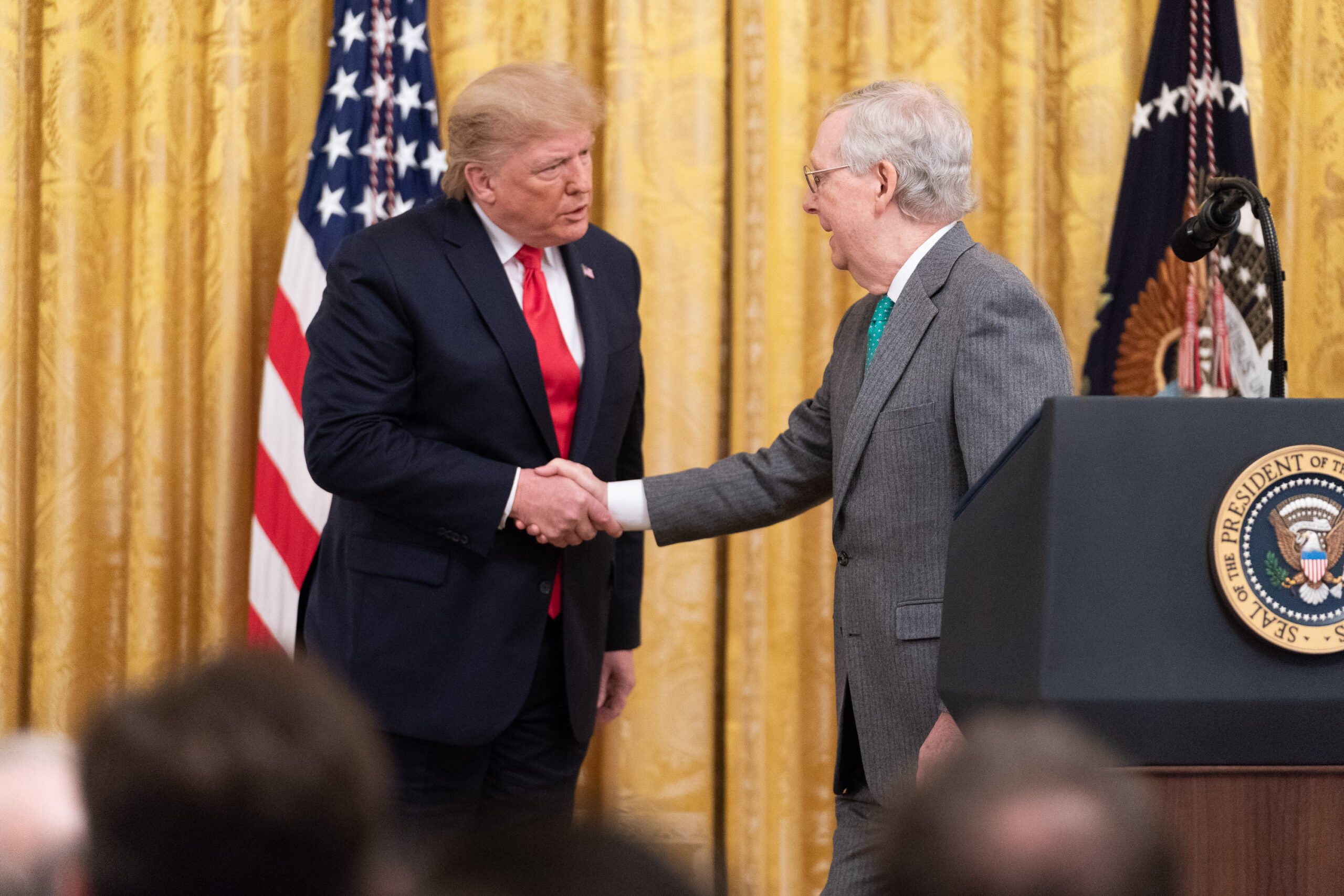
New Coronavirus Relief Bill Includes Nearly $2 Billion for Trump-Requested FBI Headquarters Project
See the latest records we’ve obtained in our investigation into Trump’s interference in the FBI headquarters relocation plan.

See the latest records we’ve obtained in our investigation into Trump’s Interference in the FBI Headquarters Relocation Plan.
At a news conference on Monday, a reporter asked Senate Majority Leader Mitch McConnell why the Senate’s coronavirus stimulus bill included $1.75 billion to build a new Federal Bureau of Investigation headquarters facility in downtown Washington, D.C. “I’m not sure that it is, is it?” McConnell asked in response. After another journalist clarified that the Senate bill indeed included the funds, McConnell said the reporter would have to ask the White House “why they insisted that that be included.”
The White House’s interest in the FBI headquarters building has been concerning for years. In July 2017, the Trump administration scrapped a longstanding plan to move the FBI from the deteriorating J. Edgar Hoover Building downtown to the suburbs, a plan that officials said would save money, address serious security concerns, and open up prime downtown real estate. The FBI had sought congressional funding to relocate for more than a decade. Seven months after the Trump administration canceled the search for a new site, it announced plans to rebuild at its current location — which just happens to be located one block from the Trump International Hotel.
The move — along with reports that President Donald Trump was personally involved — immediately raised concerns that the White House pushed to ensure a lucrative city block remains free of competition for the president Donald’s hotel, from which he has refused to financially divest. Then, in late summer 2018, the inspector general of the General Services Administration found that GSA Administrator Emily Murphy may have misled Congress about Trump’s role — and that the agency had inaccurately estimated the costs of rebuilding. The inspector general also discussed three meetings in which the president potentially influenced GSA about the reconstruction plan.
Now, as Americans are hurting from the ongoing public health and economic impacts of the coronavirus pandemic, the White House has pressured the Senate to include an unrelated request with potential ramifications for Trump’s personal business interests in a relief bill.
American Oversight has been investigating Trump’s influence over the FBI headquarters building and will continue to demand answers. In August 2018, we filed over a dozen Freedom of Information Act requests to the Department of Justice, the Office of Management and Budget, the FBI, and GSA. We requested records of the three meetings with GSA officials as well as any communications the agencies had with the White House or key people from the Trump Organization. After the agencies failed to turn over records, we filed five lawsuits against the Trump administration in October 2018.
This March, a judge ruled that the OMB had unlawfully restricted its search for records and that it must conduct a new search. In April, another federal judge ruled in our lawsuit against the GSA, OMB, Justice, and the FBI that the agencies had also conducted inadequate searches.
This spring, we received the first sets of documents in our lawsuit for Justice Department communications with the Trump Organization or White House regarding the FBI headquarters. Recently, we also obtained records of related FBI communications with White House officials. These lawsuits are ongoing and we will continue to push for the release of records that can shed light on whether the president’s personal financial interests influenced a nearly $2 billion project with major national-security significance.